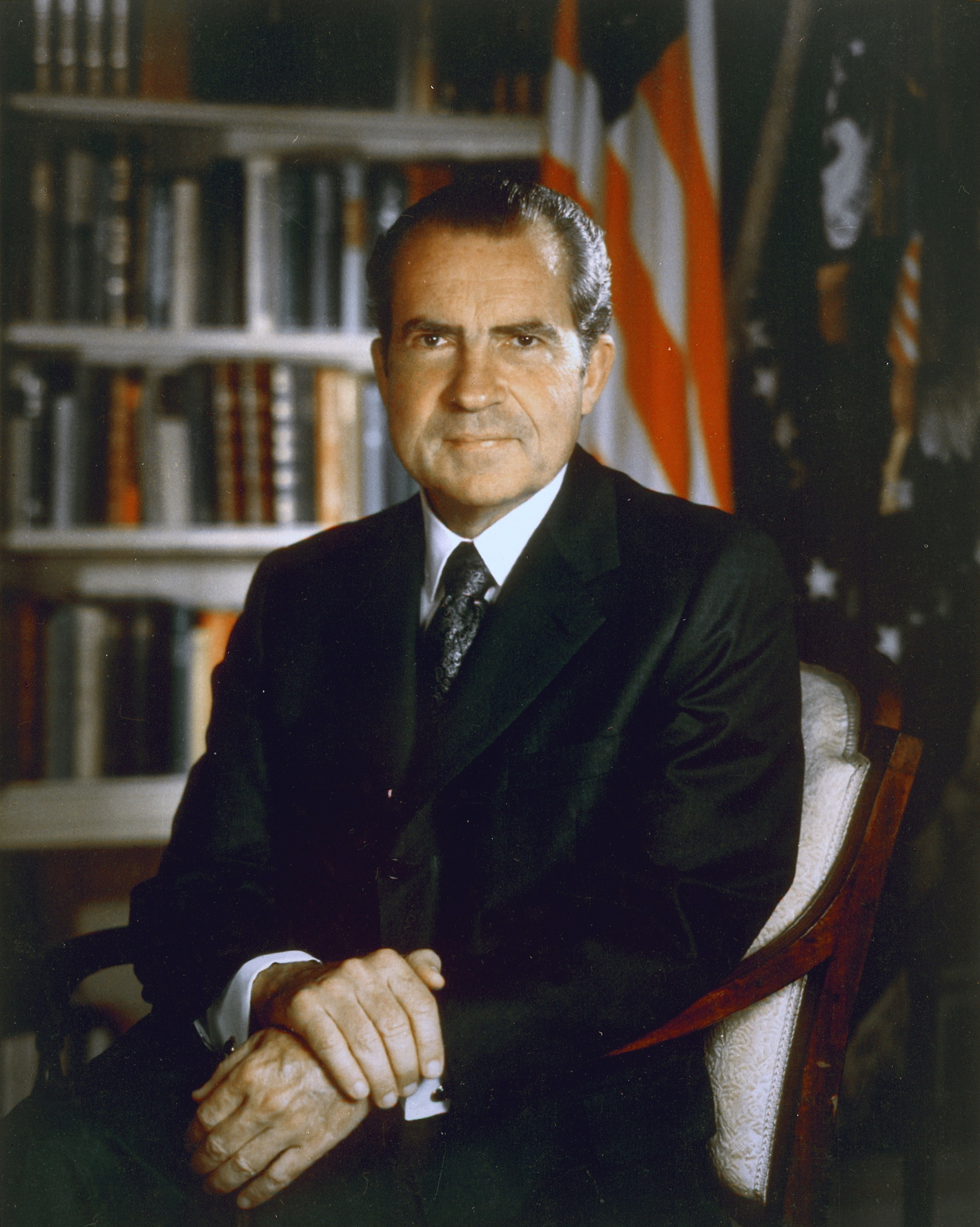
Nixon shock
The Nixon shock refers to the effect of a series of economic measures, including wage and price freezes, surcharges on imports, and the unilateral cancellation of the direct international convertibility of the United States dollar to gold, taken by United States President Richard Nixon in 1971 in response to increasing inflation.[1][2]
Although Nixon's actions did not formally abolish the existing Bretton Woods system of international financial exchange, the suspension of one of its key components effectively rendered the Bretton Woods system inoperative.[3] While Nixon publicly stated his intention to resume direct convertibility of the dollar after reforms to the Bretton Woods system had been implemented, all attempts at reform proved unsuccessful. By 1973, the current regime based on freely floating fiat currencies de facto replaced the Bretton Woods system for other global currencies.[4]